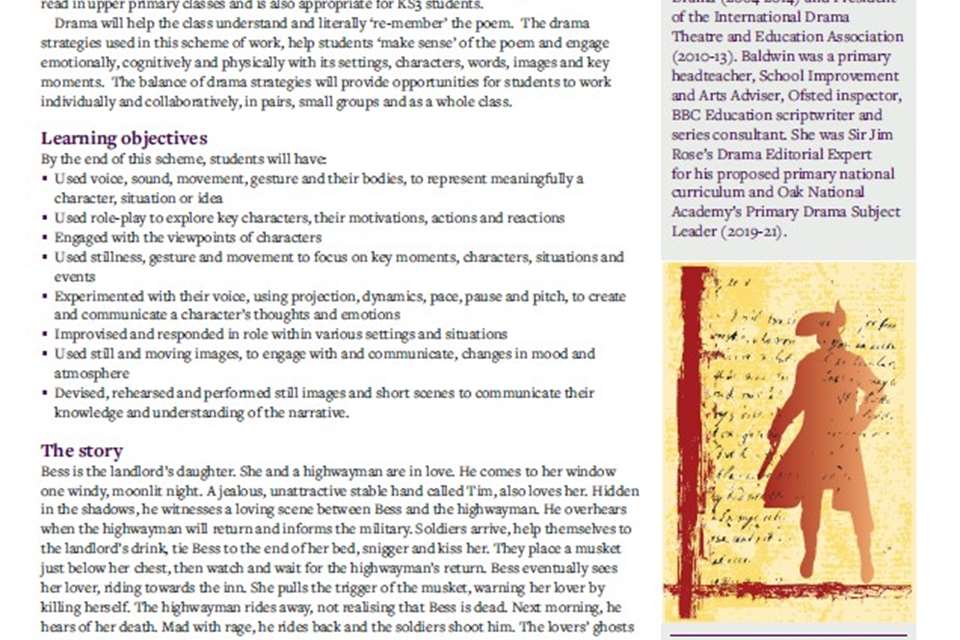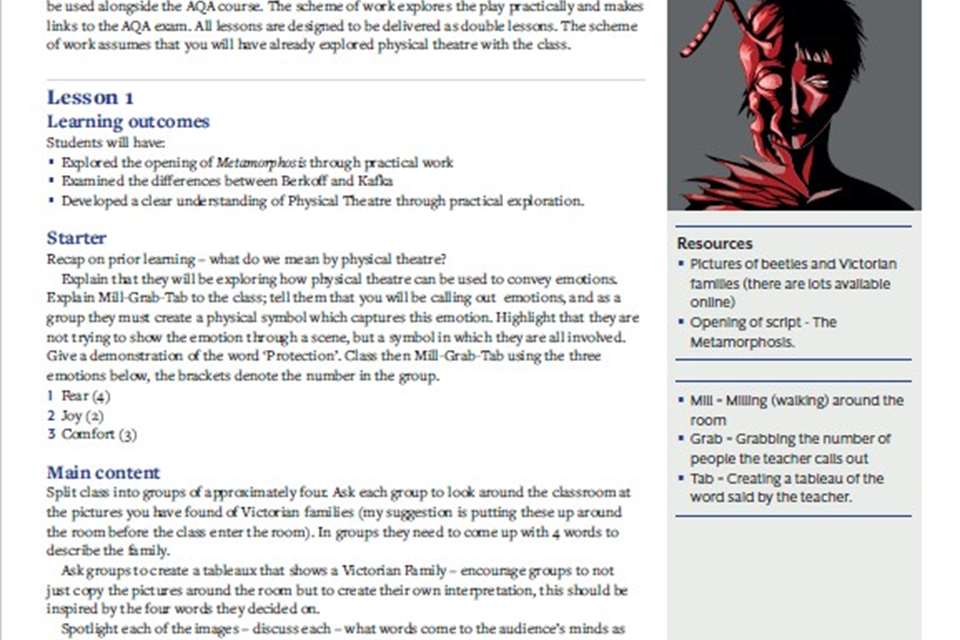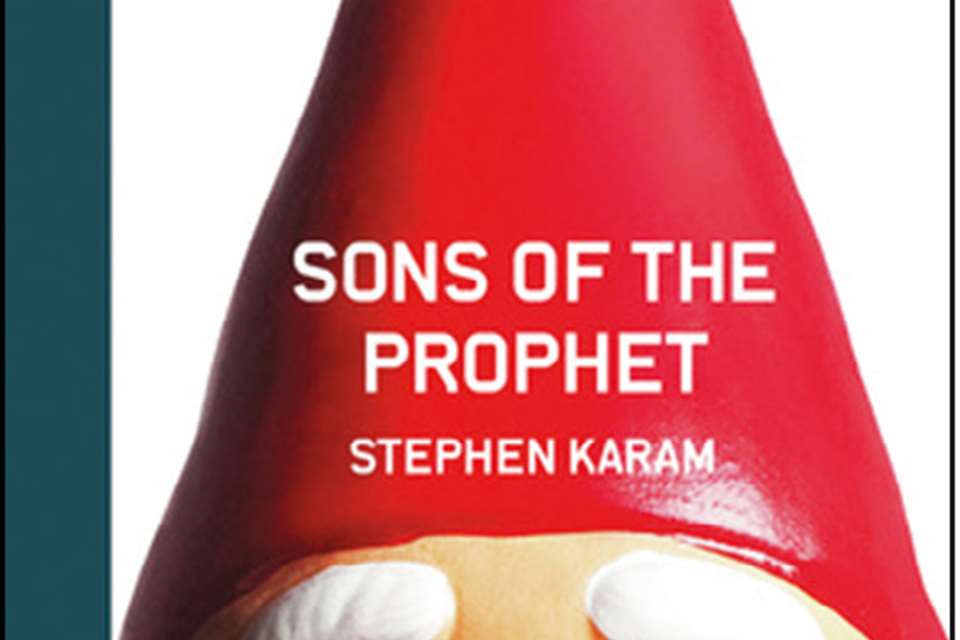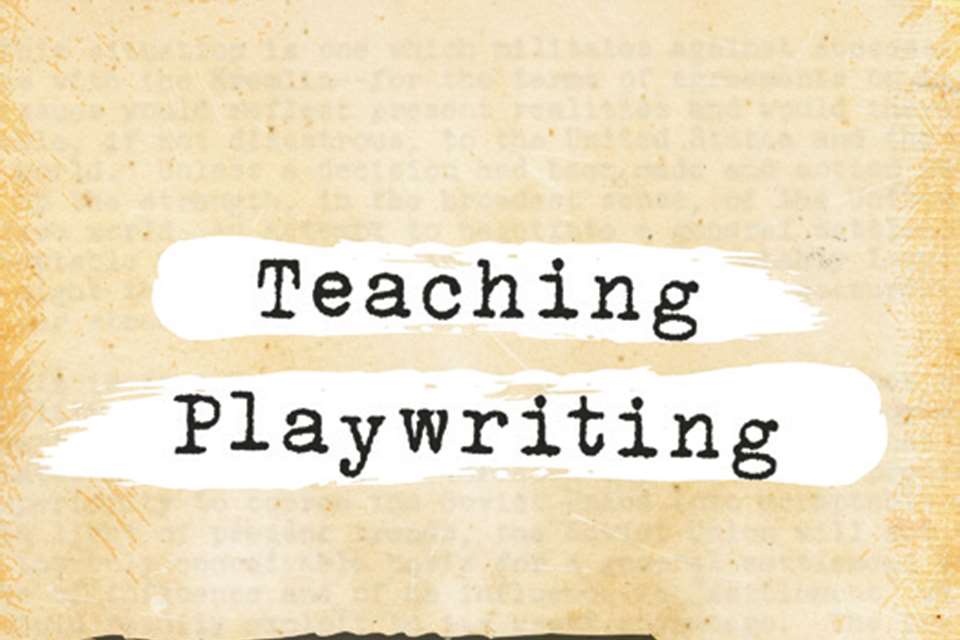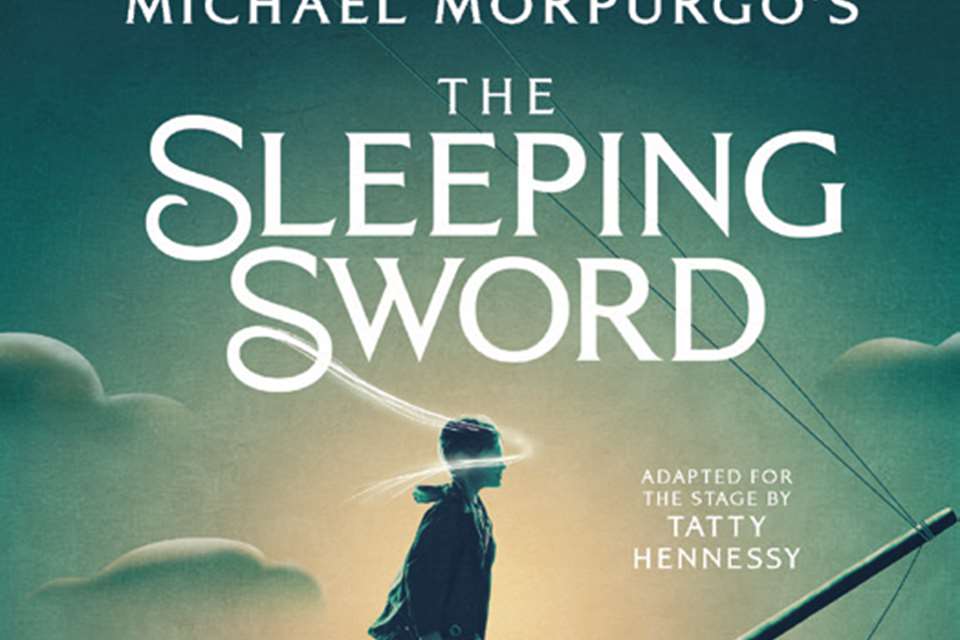[BLANK] by Alice Birch
Alice Birch, Beccy Thompson
Sunday, October 1, 2023
Each issue of D&T we bring you a teacher or academic's guide to a play for study with your students. This issue, Beccy Thompson introduces Alice Birch's [BLANK].
![Ayesha-Antoine and the company in [BLANK] at the Donmar Warehouse](/media/245363/dt-2023-110-44_f02.jpg?&width=780&quality=60)
Helen Maybanks
Background and plot
[BLANK] was born out of playwright Alice Birch's collaboration with the theatre company Clean Break. It focuses on women caught up in or affected by the criminal justice system. Birch wrote 100 scenes, inviting the director to choose to use whichever they wish, placing them in any order to create a production. This choice makes the play a particularly good text to experiment with for KS4/5 exams and includes scenes for children, adults or a mix of both.
In the programme for the first production of [BLANK] at the Donmar Warehouse in 2019, the play was described as an examination of ‘what we expect of narratives of criminalised women’. The non-linear, episodic narrative allows the audience to interpret and engage with [BLANK] in their own way. Scenes include:
- Transference: A anxious social worker breaking the news to a mother that her daughter has committed suicide in prison.
- Refuge: a woman is refused entry to a refuge away from her violent partner
- Codes: a prison officer lists the acts of violence committed on or by female prisoners across one night.
Themes
Although the scenes are largely unrelated, they are interconnected by several recurring themes, such as crime, relationships, social justice, women and family. As a whole piece, [BLANK] asks the audience to consider the stigma of being associated with prisons.
Scene 100, ‘Dinner Party’, is a good starting point to reflect on this. The gathering begins with characters bragging about friends who built ‘a well thing in Kenya’ and congratulating the host for food which ‘smells amazing’. Privileged commentary pervades, with references to ‘poor’ women with violent backgrounds who cannot help their fate.
Towards the end of the scene, a character who does not conform calls out the group's ‘bleeding heart bubble of hypocrisy’. This, along with the moment the friends send out for cocaine, provokes the audience to question how class influences our perception of such activity: middle-class recreation or working-class crime?
In performance
[BLANK] was initially co-commissioned by the National Theatre and Clean Break as part of Connections in 2018. It was first performed by Clean Break the following year at the Donmar Warehouse, using 22 of the 100 scenes. In 2021 it was produced as a radio play at Cambridge University, showing the creative opportunities the play provides.
Exploring the play
As [BLANK] is so closely associated with Clean Break, it would also be worth looking at this company's work and ethos. The social justice dimension of Clean Break's work – to improve the lives of women in the criminal justice system – resonates with Boal's Theatre of the Oppressed, which could be an interesting method to explore with students as part of the study of [BLANK].
The company's dedication to collaboration and creating a ‘safe working environment for young women’ could be a good starting point with older students, asking them to consider what ‘safe’ might mean in the context of prisons. Researching the criminal justice system in relation to women's experiences with students could help with understanding some of the messages in the play. Charities such as the Prison Reform Trust and Clinks offereelpful statistics and introductions to this topic.
The aforementioned dinner party scene in [BLANK] is reminiscent of the opening of Caryl Churchill's Top Girls. In the scene, the protagonist Marlene's inner psyche is explored when she is joined by a group of exclusive women from history, art and literature. With students, you could discuss the value of using the ‘dinner party’ as a devise to meditate on important issues in people's lives. Low-stakes activities like a playing card status exercise – for instance, everyone is (secretly) given a card and must improvise a party scene performing according to their ascribed status (ace is high) – could give students a practical experience to begin discussions around power in relationships.
The range of scenes in [BLANK] provides ample opportunities for students to literally ‘fill in the blanks’ of character. To support students with this, give groups a scene and after an initial read through ask them to create a still image that captures the essence of it. Next, ask them to make a still image of what they think happened before this scene, and another of what happened after. These can be developed into short dialogues to help students explore the background and consequences for the characters and think sensitively about their circumstances.
[BLANK] is a worthy play to study, not least because it gives a voice to an underrepresented group, but also because the freedom afforded by Birch to craft a play by ‘pic ‘n’ mixing’ scenes, has the potential to spotlight particular themes or issues relevant to a wide range of contexts.
Resources and links
-
McAvinchey, C. (2018). Theatre and prison. London: Bloomsbury Publishing.
-
Smirthwaite, N. (2021) Creative freedom: Clean Break Theatre Company. Drama & Theatre Magazine.


